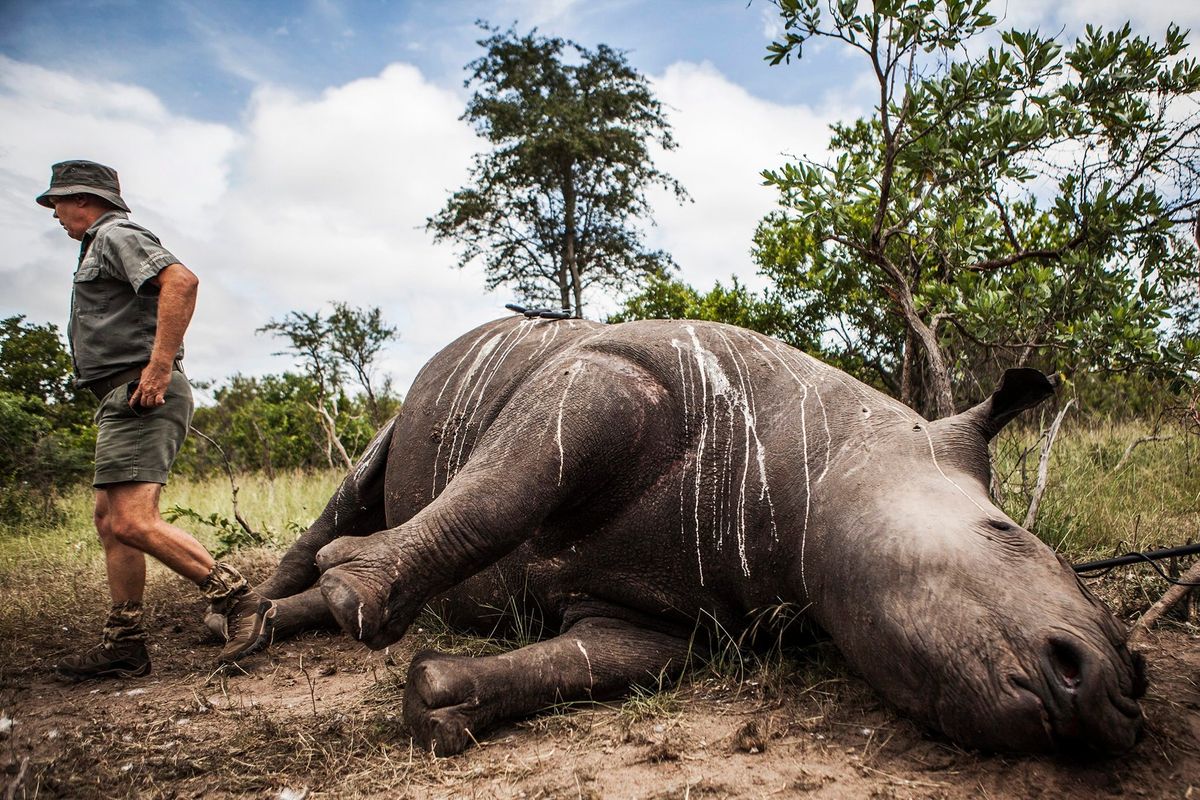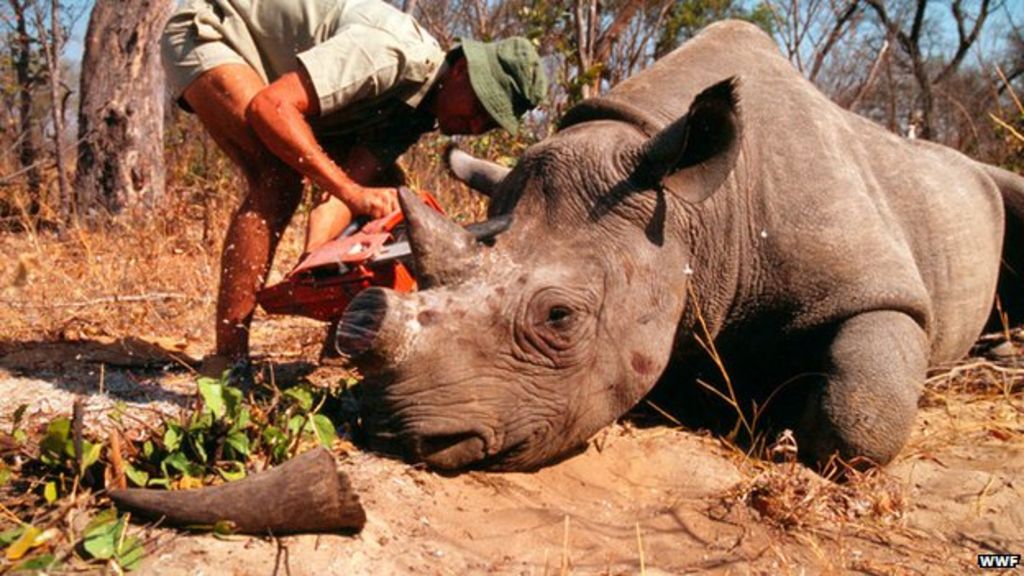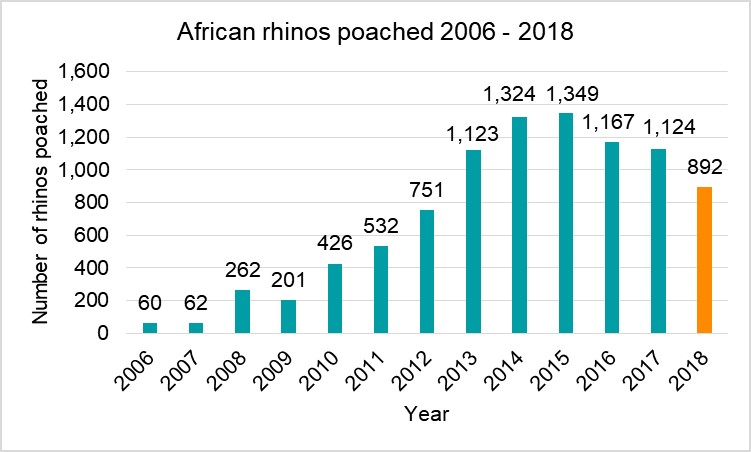Poaching could increase as coronavirus halts African tourism

A few minutes every morning is all you need.
Stay up to date on the world's Headlines and Human Stories. It's fun, it's factual, it's fluff-free.
The coronavirus pandemic has resulted in a global halt to tourism due to lockdowns, stay-at-home orders and travel restrictions. In Africa, there’s concern that this could give rise to increased poaching activity.
While poaching is not uncommon in eastern and southern Africa, poachers have become emboldened by the decreased presence of tourists and their guides – normally a deterrent – and have started to encroach on tourist hot spots that they normally wouldn’t enter.
In Botswana, there have been at least six rhinos poached since the country went into lockdown in early April, and the country’s government announced that its security forces killed five suspected poachers in two separate incidents.
In South Africa’s North West province, at least nine rhinos have been killed by poachers since the country went into lockdown.

The continent’s national parks, game reserves and conservancies are usually patrolled by rangers, and the tourist presence provides extra eyes to report illegal activity. But now that tourist activity has stopped, park rangers are being tasked with monitoring millions of acres of remote land.
“Organized crime syndicates don’t send poachers where there is high human density,” Tim Davenport, the director of species conservation for Africa at the Wildlife Conservation, told Earther. “With fewer people about, it is inevitable that illegal activities will occur.”
Due to a lack of revenue, there is fear that the increasing number of layoffs that have hit the tourism sector, among others, during the pandemic will affect rangers, as these reserves and conservancies rely on tourism to pay rangers to patrol for poachers.
Anti-poaching operations are expensive even in non-pandemic times. Not only do rangers have to be paid, they also need equipment like vehicles and aircraft, which themselves require fuel.
Conservationists are concerned that if rangers are not out patrolling, poaching of wildlife, particularly rhinos, could significantly increase as a result.
“I’ve done this job for 15 years, and I’ve never been so busy,” Nico Jacobs, the founder of Rhino 911, a South Africa-based emergency rescue unit that provides helicopter response and transport for rhinos, told Earther.
Rhino 911 has been permitted to keep operating, as anti-poaching operations are considered an essential service.
“Now it’s still not even a full moon. First full moon over the lockdown period, we’re going to be in for a hell of a surprise,” Jacobs said. Full moons are productive periods for poachers, as they can avoid detection by anti-poaching patrols since they don’t have to rely on flashlights to see.
A hit to conservation
Africa has been particularly impacted by rhino poaching, with over 8,889 rhinos killed between 2008 and 2019.

South Africa is home to nearly 80% of the world’s rhinos and has been the country most affected by poaching. Between 2013 and 2018 over 1,000 rhinos were killed annually in South Africa, though the overall number of rhinos poached each year has dropped across the continent in recent years.
The rates of illegal elephant killings in Africa have also decreased, from a peak of 10% in 2011 to less than 4% in 2017, according to a report published in Nature Communications.
But there is now fear that conservation and anti-poaching efforts to curb poaching could be undone by the coronavirus pandemic.
Conservation efforts in Africa are heavily dependent on its tourism industry, with a large majority of the funding received by conservancies and national parks coming from tourism related sources, such as entry fees, safari rides and trophy hunting permits.
According to the United Nations World Tourism Organization, 71 million tourists visited Africa in 2019, representing a 4% increase over 2018. With tourism now gone, substantial cuts in funding for conservation efforts are being made at national parks, game reserves and conservancies.
Conservation efforts have also had to deal with reduced donations, as donors across the world are feeling the financial pinch of the coronavirus.
The effect of unemployment and poverty
Conservationists are also expecting that rising unemployment will push more people towards poaching as a stream of income.
Conservationists are also worried that some may resort to bushmeat poaching of zebras, giraffes and other animals for consumption or to sell.
A study published in Conservation and Society looked into the links between poverty and poaching, concluding that poverty is a significant driver of poaching and that many who resort to poaching do so in an attempt to transition out of severe or moderate poverty.
The study included 171 self-admitted poachers living around a national park in Tanzania, 46% of whom considered their households to be poor compared with other village households. Those 46% reported that they poached more and over longer periods than those living in average-income households.
Those who considered themselves moderately poor poached to supplement their primary income source.
[article_ad]
Have a tip or story? Get in touch with our reporters here!
Sign up for daily news briefs from The Millennial Source here!




Comments ()